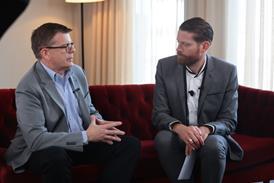
Carmakers and shipping lines at the Automotive Logistics Turkey conference expressed concern that a lack of development and investment in Turkish ports for vehicles could slow the industry’s expected growth.
Turkey, whose production is expected to reach 1.3 million vehicles this year, and hopes to reach 2 million in the medium term, exports around 75 per cent of production. But it currently has capacity for only around 1 million cars, as well as lacking container capacity. At a roundtable discussion, Altan Aytaç, Supply Chain Director for carmaker Tofas, said that if there is not investment added to ports in the Marmara region: “The Turkish industry will be like someone who cannot use the toilet for a week. We will lack a point of exit.”
Ozgur Kalelioglu, Director, Port Services Group for Turkish logistics provider Arkas Holding, presented details of Autoport, the first dedicated car terminal in Turkey. While carmakers Tofas, a joint venture between Fiat and Koç Group, said it is currently in talks to use the terminal, Autoport still has no permanent customers. One reason offered privately by delegates was that the price is well above current market levels. There are six ports currently serving for the Turkish vehicle market, the largest Yeniköy, Derince and Gemport, all in the Marmara region. However, none offer dedicated automotive services.
“They are non-dedicated, multi-purpose terminals that are not clean enough for car handling,” said Kalelioglu. “In some places, cars are being stored on what looks like a construction site.”
The privatisation of ports has also left the future uncertain for several ports. Shipping lines predicted that investment in the more profitable container trade would likely take priority over car terminals. An example could be the southern port of Izmir, where Grimaldi currently imports Opels. Hutchison Group, Global Investment Holding and EIB have just recently succeeded in their $1.3 billion bid to acquire the port, following a trade union objections to the sale. While the investors have announced plants to double capacity, the future of vehicle operations there is unclear.






























